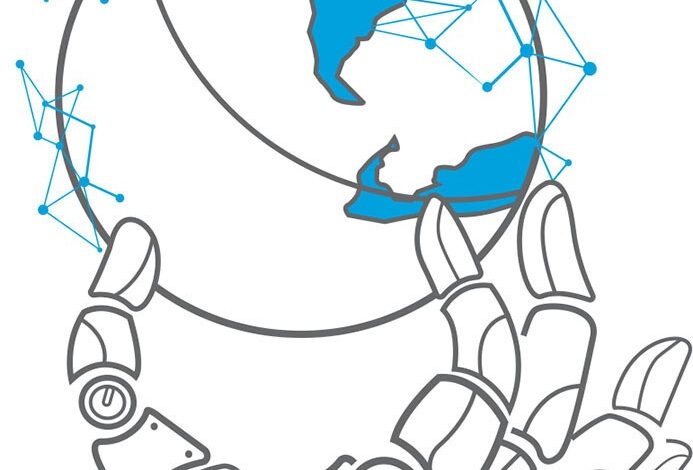Navigating the Impact of AI on Associations and the Sectors They Represent


IN FALL 2023, Strategic Membership Solutions presented our “Navigating the AI Revolution: The Impact of AI on Associations and the Sectors they Represent” webinar and presented on AI at the Association Leaders Retreat. We’ve had a fantastic response and it’s not surprising – AI is about to transform the world in ways we can only begin to imagine. Here are the main takeaways from these sessions:
AI is Inevitable, and Change is Imminent
Artificial Intelligence is about to revolutionize our world. A June 2023 report by McKinsey & Co. estimated that between 2030 and 2060, up to half of today’s work activities could be automated.
AI’s is on the verge of changing our world in ways we can scarcely imagine. We are at the crossroads of unprecedented possibilities and challenges for our associations – and the sectors we serve.
For better or worse, we cannot stop it coming.
The Impact of AI on Work
AI’s impact stretches far beyond automating repetitive tasks and will profoundly influence knowledge work across various professions.
Many sectors will benefit substantially from AI’s transformative power, including manufacturing, autonomous vehicles, education, healthcare, agriculture, and customer service.
However, professionals within these sectors may encounter greater difficulties as AI advances. Technology, media, legal, market research, finance, design, and customer service are expected to be most rapidly affected.
Amidst this shift, new professions are emerging, such as AI development, ethics, data handling, and operations being just a few examples of professions needing an association to represent them.
The advent of AI presents a dual challenge: while many sectors will thrive due to AI, many of the professions working within those sectors may struggle. How this plays out will have significant implications for the industry bodies, professional associations, and trade associations representing these groups.
Potential Positive Outcomes of an AI World
AI serves as a catalyst for innovation and has the potential to positively impact many sectors. For example:
- In healthcare, AI can improve diagnostics, personalize treatments, and expedite drug discovery, ultimately leading to better patient outcomes.
- In education, AI enables personalized learning and adaptive tutoring, transforming the learning experience and enhancing educational outcomes.
- AI can aid environmental conservation through advanced data analysis, enabling more effective responses to environmental challenges.
- The transportation sector can be revolutionized by autonomous vehicles and intelligent traffic management systems, leading to increased efficiency and safety.
- In financial services, AI can boost efficiency through automation, fraud detection, and algorithmic trading, resulting in better customer experiences and enhanced security.
- AI can optimize agricultural practices through precision farming and crop monitoring, leading to higher yields and more sustainable approaches.
Potential Risks of an AI World
While AI offers immense potential, it also comes with inherent risks that require careful management. For example:
- Widespread automation could lead to significant job displacement and increased income inequality.
- The prospect of AI surpassing human intelligence raises ethical and practical dilemmas that we are yet to fully comprehend.
- The development of autonomous weapons driven by AI raises concerns about misuse and unintended consequences.
- The malicious use of AI for cyber warfare and hacking poses significant security risks as technology advances.
- Biases in AI systems can lead to unfair outcomes, particularly in areas like hiring, lending, and law enforcement.
- AI-enabled monitoring and data collection raise critical privacy issues and potential abuses of power.
The Role of Associations
Everyone has an opinion on the best way to approach AI. There are those who want to jump onto the AI bandwagon with both feet. Others are more cautious and prefer a “Wait and see” approach. And some are contemplating whether early retirement is an option.
Associations don’t have the luxury to choose not to do anything. As the custodians of professions, sectors, and causes, associations must act to successfully navigate our organizations and those we represent through what’s coming.
The need for associations has never been greater.
AI within Our Associations
Operationally, Associations are increasingly leveraging AI to enhance their operations and provide value to members. They are already using AI to:
- Create Content: Rapidly developing engaging content tailored to the audience’s interests and preferences.
- Enhance Sponsorship Outcomes: Use AI tools to target prospects, and create compelling proposals.
- Personalize Communications: Leveraging AI algorithms to drive member engagement with customized content.
- Amplify Conference Content: Employing AI tools to create digestible conference summaries and actionable takeaways.
- Enhance Member Services: Using AI-powered platforms such as Chatbots to deliver personalized and timely responses to member queries.
- Undertake Robust Data Analysis: Leveraging AI to streamline research processes and enhance outcomes.
- Deliver Cost-Effective Quality Training: Employing AI to produce high-quality training materials.
- Drive Member Engagement: Applying AI-driven analytics for an in-depth understanding of member engagement patterns.
Starting Your Association’s AI Journey
Navigating the AI landscape need not be daunting. Associations wanting to take the first steps towards leveraging AI to achieve operational success should:
- Understand AI and its potential benefits for the association.
- Evaluate the association’s current digital maturity and areas for improvement.
- Begin with manageable AI projects to gain experience and build confidence.
- Involve your entire team in the AI journey.
- Invest in AI training to upskill staff for the digital shift.
- Launch pilot projects using affordable or open-source AI tools.
- Prioritize data management to position the association for future AI initiatives.
- Encourage a culture of innovation and learning from failures.
- Seek collaborations with AI experts or other organizations.
- Monitor the impact of AI initiatives and adjust strategies as needed.
- Stay informed about the latest AI trends and developments.
Supporting Your Sector’s AI Journey
Associations play a pivotal role in supporting their members through the AI transition. Associations seeking to support their members through the AI transition should:
- Embed AI adaptation for their sector into the association’s strategic plan.
- Advocate for responsible AI policies that support the sector and mitigate risks.
- Position the association as a thought leader in AI conversations.
- Educate and inform members about AI advancements, trends, and case studies.
- Provide training for upskilling and reskilling to support members in their transition.
- Assist members affected by job displacement in career transitions.
- Facilitate knowledge exchange among members on AI implementation experiences and best practices.
- Foster collaborations with other entities for comprehensive AI solutions and research.
- Invest in research and innovation to explore AI opportunities and drive initiatives benefiting the sector.
By adopting a strategic, informed, and proactive approach, associations can turn the AI revolution from a daunting challenge into a powerful tool for enhancing their operations, supporting their members, and driving their sectors forward.




